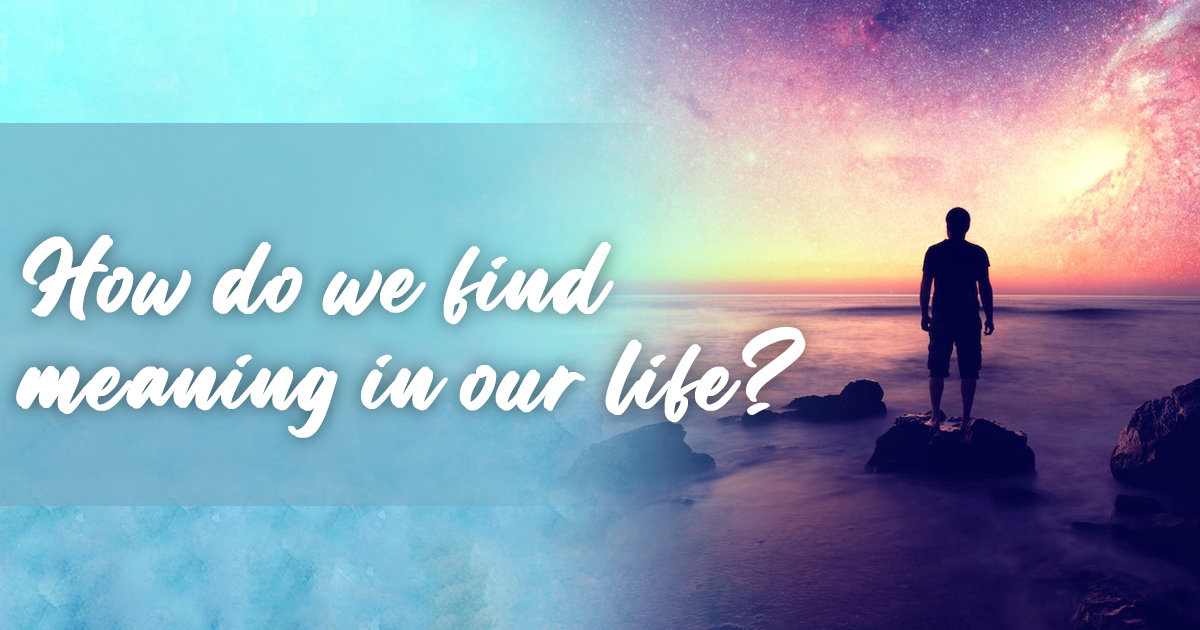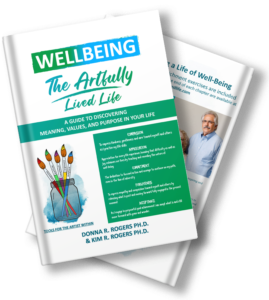How do we find meaning in our life?
I was watching my grandchildren in the wading pool section of a water park and noticed the unusual behavior of the lifeguard. He was using his hand as a guide to scan the knee-deep water. Having seen other lifeguards using this technique I believe he was training his focus on the areas of the pool where toddlers might be in distress rather than being distracted by everything else going on at eye level. Keeping children safe was of great importance to the lifeguard. Just as focusing his visual attention was critical for his work, focusing our mental attention is important for developing meaning in our lives. If we allow our autopilot to focus on things that catch our attention but that are unimportant, we miss what is most important in our lives.
What are your values?
In order to develop meaning in your life, there are two questions you may want to consider. First, what are your values, what is important to you? What is really important to you in the long run. Second, how can you direct and maintain focus on those values (perhaps most of the time)?
To answer the first question, you might revisit or decide what your core values are. Often people think of values as virtues. Although many of your values may be derived from your moral compass, in a general sense, values simply represent what is most important to you. You might think of values as stars that you use to navigate your direction compared to goals which are more like the destinations that you want to reach or the things that you wish to accomplish. Values are what you strive for, and they tend to define your character. If you haven’t considered your values lately, you might want to take some time and record 10 of your core values. Before you arrive at your choices, however, there are five core values that you might consider adding to your list. These values have been described in ancient wisdom texts and demonstrated in more current clinical studies to be keys to well-being and life satisfaction. They include:
Forgiveness (of self and others),
Gratitude (for all things),
Self-Compassion (compassion for self is the key to compassion for others),
Acceptance (of who you are including your mistakes and limitations as well as for your current circumstances), and
Commitment (to intention, focused action and courage even in the face of adversity).
How do we stay focused?
The next question is how to stay focused on your values and practice value-guided thinking and behavior which, to the extent you use them, will bring a greater sense of meaning to your life. This is especially challenging when there are so many distractions that compete for your attention. This is why being aware of- and choosing value-guided behavior, requires practice and commitment. Just like in other areas of life, mastering skills in athletics, music, trades, professions, etc. requires time and effort.
One of the ways that we can practice the art of focus is through mindfulness meditation. Through the basic breathing meditation, we learn to refocus our attention back to our breathing. By practicing the ability to stay in the present moment, we also learn to become more aware of our thinking and realize that we have a choice to refocus (often again and again) our attention, thinking, and behavior to align with our values.
Another area where people tend to have challenges with focus is when they direct attention toward things over which they have little or no control. We can’t control our past circumstances, but we can change the thinking and behavior that we may have developed to protect ourselves (such as from abusive or delinquent parents, etc.). In addition, although we may not be able to control many of our present circumstances, we can absolutely control how we respond to and interpret what happens to us now in our lives. This is another area where we can define meaning in our experiences.
The Path of Ikigai
Another pathway to developing meaning in life has been part of Asian culture for many years and was recently described by Ken Mogi in “The Little Book of Ikigai; Live a Happy and Long Life the Japanese Way”. Finding your Ikigai has also been described as having a purpose or a reason to get up every morning. Mogi also provides the translation of “iki” (to live, pronounced ee-kee) and “gai” (meaning reason, pronounced guy), which literally means the reason to live. Mogi goes on to outline the 5 pillars of Ikigai. These are:
Start Small: Consider incremental progress in your goals and aspirations.
Release Yourself-Accept Yourself as You Are: seek to find who you are rather than trying to change who you are.
Harmony and Sustainability: Build a connection with your community, your social and natural environment.
The Joy of Little Things: Look for your joy and passion wherever you find it: hobbies, family, etc.
Being in the Here and Now: Move past your regrets of the past and worries for the future by focusing on the here and now.
There are as many paths to finding meaning in one’s life as there are those looking for it. Nevertheless, it seems clear that meaning emerges from where we choose to focus our attention. We can either allow our un-aware autopilot to define a distorted sense of meaning or we can practice awareness and values-guided thinking and behavior to define a greater and more fulfilling sense of meaning and well-being in our lives.
Where can I find additional information on developing more meaning in my life?
“WellBeing: The Artfully Lived Life,” is a complete guide to psychological well-being; a holistic concept, encompassing all aspects of our lives. This book offers a wealth of insights and practical advice for practicing mindfulness, fostering meaningful relationships and engaging in thinking and behavior that brings joy and fulfilment in your life. Taking small steps each day can lead to transformative changes in your well-being, ultimately leading to a more balanced and artful existence.


